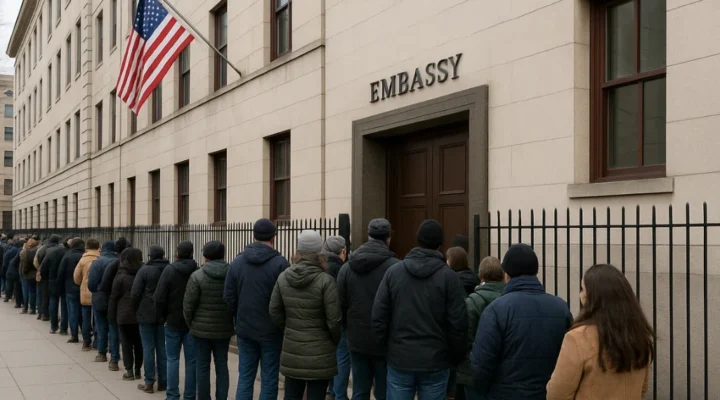Apply in Home-Country Requirement
Starting September 6, 2025, NIV applicants (individuals applying for a Nonimmigrant Visa) are expected to apply at a U.S. embassy or consulate in their country of nationality or legal residence. This limits the option of applying at embassies in third countries to avoid long appointment wait times or traveling long distances, a practice commonly relied upon in the past.
Exceptions may be granted, but only on a case-by-case basis and under more restrictive standards. Check the website of the U.S. embassy or consulate where you intend to apply for location-specific requirements.
The new rule essentially ends widespread Third-Country National (TCN) processing for most applicants. It mandates that you must apply from either:
- Your country of nationality (e.g., a citizen of Brazil must apply in Brazil).
- Your country of legal residence (e.g., that same Brazilian citizen, if they have a legal residency permit in Portugal, can apply in Portugal).
Why It’s Happening
While the Department of State hasn’t provided a reason for this change, Visanation lawyers suggest this policy ensures:
- Applicants are vetted by officers with the most relevant expertise
- Backlogs are reduced in convenient embassies like Mexico and Canada, and the workload is distributed more predictably to each country’s own consular offices.
- A more consistent and standardized level of scrutiny, reducing the perception that applying in one country is “easier” than in another.
Narrowing of Interview Waivers (Dropbox)
As of September 2, 2025, eligibility for the NIV interview waiver program has been sharply reduced. Many categories, including H, L, O, F, and M, will now require in-person interviews for renewals. A smaller waiver program remains, but it applies only to certain applicants renewing a full-validity visa in the same classification and filing in their home country or country of residence.
Why It Matters
These policy shifts reflect the government’s aim to strengthen screening standards and address concerns about misuse of the waiver program. In practice, it means longer planning timelines, reduced flexibility, and higher burdens on both applicants and employers coordinating global mobility.
Next Steps for Applicants and Employers
- Plan visa applications well in advance and anticipate the need for in-person interviews.
- Check the website of the U.S. embassy or consulate where you intend to apply for location-specific requirements.
- Stay updated through the U.S. Department of State’s official travel website.
As immigration attorneys, we are closely monitoring these developments. While they present new challenges, proactive planning can help applicants and employers avoid costly delays.
Don’t Navigate These Changes Alone. Schedule a Consultation.
 Keenan Ennis
Keenan Ennis  Shilpa Malik
Shilpa Malik 